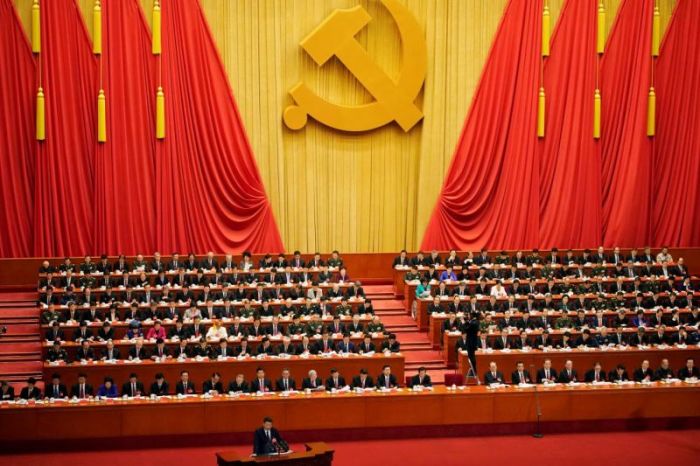China attempts to stifle Christianity with education system crackdown

The level of control imposed on Christians by the Chinese government continues to increase — particularly on children.
Since 2015, Chinese President Xi Jinping has implemented a campaign framework called “Sinicization” to govern religious affairs in China. Under this movement, religions in the country must have Chinese characteristics and adapt to socialist Chinese society.
Beijing is most heavily reinforcing its religious restrictions on minors, with the goal of ensuring that future generations are ideologically indoctrinated to listen to and follow the Chinese Communist Party (CCP).
A pastor who founded a house church in the coastal area of southeast China recently shared with Global Christian Relief the strategy the Chinese government employs to strictly control minors, which he calls “The Pharaoh Policy.” Just as Pharaoh targeted the Israelites’ children in Exodus 1, Beijing’s tactics highlight its determination to eliminate opportunities for young people to learn about God.
“The overall situation [in China] is challenging for house church Christians. Nowadays, it is easier [for the government] to brainwash Christians,” said the pastor. “The systemic crackdown has been imposed on the next generation. The goal is to cut the growth at the next generation, so there will be fewer Christians in the future.”
Chinese children have been barred from attending religious services and engaging in religious activities since 2017.
Before Xi came to power, children during the era of former President Hu Jintao were allowed to attend Sunday School. Now, under Xi, many parents of kindergartners and middle schoolers must sign and submit a “pledge to not believe in religion” to their children’s schoolteachers.
Government staff monitors to make sure no child enters places of worship. Protests by parents who say they cannot leave their children home alone go unheard. To bypass these restrictions, many churches secretly host Sunday School in member's homes.
Homeschooling has gained popularity among Chinese Christian families in recent years. Many families have banded together to host homeschools to avoid CCP political indoctrination. The number of students in a homeschool typically ranges from 10 to 50, with some having as many as 100 children in attendance.
The presence of these homeschools has attracted unwanted attention from the local authorities. In cities like Hangzhou, Qingdao and Guiyang, many home schools have been shut down. In Wenzhou, five Christians were arrested and subject up to 20 days of detention. For more than a year, a principal was placed under residential surveillance at a “Designated Location,” a form of secret detention used to target and punish individuals.
To further deter Christians from setting up home schools, authorities have issued fines starting from $98,000 to an astronomical $838,500. School leaders refuse to accept the unreasonable penalties to delegitimize the government’s actions.
Given these challenges, many Christian parents have little choice but to send their children overseas for education. Those who cannot afford this option continue their homeschooling in secrecy, believing that education based on biblical principles, coupled with homeschool co-ops with other Christians, is vital to the upbringing of their children.
Christian college students are also facing increased crackdowns on college campuses. In the past, campus fellowships run by churches were common at universities. But beginning in 2014, many churches were forced to display signs that read, “Minors and college students are not allowed to participate in religious activities,” leading to the shutdown of campus activities.
Christian students in universities are prohibited from proselytizing to their classmates on campus, and face being reported to authorities for doing so. Fellowship leaders are targeted with threats and surveillance. Christian professors are also not allowed to share the Gospel with students.
The harsh clampdown on seminaries associated with unregistered churches is another indication of Beijing’s willingness to reign over religious education. In the cities of Chengdu and Xuzhou, several seminaries have been raided by the police and their leaders have been taken away for questioning. In 2022, two Bible institutes in Wenzhou were labeled as “illegal social organizations” by a civil affairs bureau and disbanded.
Historically, Chinese Christians would travel to Hong Kong for seminary or to connect with believers there. After the pro-democracy movement in 2019, Beijing grew wary of the region’s influence over Chinese citizens. Chinese Christian leaders who visit Hong Kong risk interrogation after their return. Studying at seminaries is now more precarious for Christians looking to escape the mainland.
Hong Kong, along with the rest of China, is no longer a haven for Christian education.
CJ Wu is a writer for Global Christian Relief (GCR), America’s leading watchdog organization focused on the plight of persecuted Christians worldwide. In addition to equipping the Western church to advocate and pray for the persecuted, GCR works in the most restrictive countries to protect and encourage Christians threatened by faith-based discrimination and violence.




























